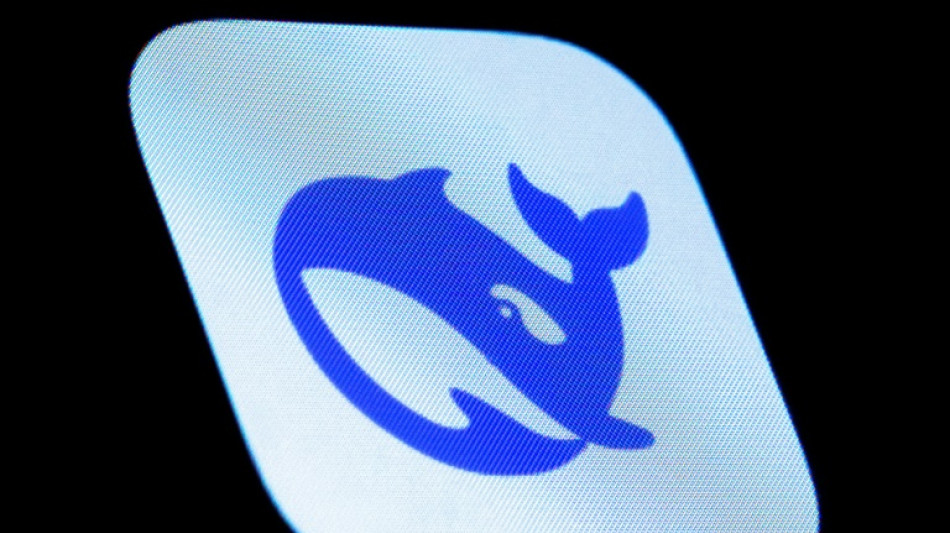
-
 Beijing votes out three generals from political advisory body
Beijing votes out three generals from political advisory body
-
The French village where Ayatollah Khomeini fomented Iran's revolution

-
 South Africa, India eye T20 World Cup rematch as semi-finals begin
South Africa, India eye T20 World Cup rematch as semi-finals begin
-
Trump hosts Germany's Merz for talks eclipsed by Mideast war

-
 Second-hand phones surf rising green consumer wave
Second-hand phones surf rising green consumer wave
-
Pakistanis at remote border describe scramble to leave Iran

-
 China votes to oust three generals from political advisory body
China votes to oust three generals from political advisory body
-
Murray scores 45 as Nuggets hold off Jazz

-
 Five things about the 2026 F1 season
Five things about the 2026 F1 season
-
Scrum-half Gibson-Park: Ireland's 'petit general'

-
 Geopolitical storm leaves isolated Greenlanders hanging by a telecoms thread
Geopolitical storm leaves isolated Greenlanders hanging by a telecoms thread
-
Myong hat-trick as North Korea cruise at Women's Asian Cup

-
 AI disinformation turns Nepal polls into 'digital battleground'
AI disinformation turns Nepal polls into 'digital battleground'
-
New Israel, Iran attacks across region: Latest developments in Middle East war

-
 China's overstretched healthcare looks to AI boom
China's overstretched healthcare looks to AI boom
-
Oil extends gains and stocks drop as Iran conflict spreads

-
 Rituals of resilience: how Afghan women stay sane in their 'cage'
Rituals of resilience: how Afghan women stay sane in their 'cage'
-
Strait of Hormuz impasse squeezes world shipping

-
 Oscar-nominated Iranian doc offers different vision of leadership
Oscar-nominated Iranian doc offers different vision of leadership
-
Oscar-nominated docs take on hot-button US social issues

-
 'I couldn't breathe': The dark side of Bolivia's silver boom
'I couldn't breathe': The dark side of Bolivia's silver boom
-
Underground party scene: Israelis celebrate Purim in air raid shelters

-
 Flowers, music, and soldiers at funeral of drug lord
Flowers, music, and soldiers at funeral of drug lord
-
'Safety and wellbeing' will guide F1 Mideast planning: FIA chief

-
 Trump to attend White House Correspondents' dinner
Trump to attend White House Correspondents' dinner
-
Will Iran's missiles drain US interceptor stocks?

-
 InterContinental Hotels Group PLC Announces Transaction in Own Shares - March 03
InterContinental Hotels Group PLC Announces Transaction in Own Shares - March 03
-
New eBook Challenges the Popular Narrative That Manifestation Is Always Positive

-
 Trump warns of longer Iran war as violence spreads
Trump warns of longer Iran war as violence spreads
-
Energy infrastructure emerges as war target, lifting prices

-
 Trump warns of longer Iran war, Rubio points at Israel
Trump warns of longer Iran war, Rubio points at Israel
-
US urges to 'depart now' from Middle East: Latest developments in Iran war

-
 Ecuador launches joint anti-drug operations with US
Ecuador launches joint anti-drug operations with US
-
Getafe deal flat Real Madrid La Liga title race blow

-
 Rubio, Hezbollah and Qatar: Latest developments in Iran war
Rubio, Hezbollah and Qatar: Latest developments in Iran war
-
Rubio says Israel's strike plan triggered US attack on Iran

-
 'Thank you, madam president': Melania Trump leads UN Security Council as Iran war rages
'Thank you, madam president': Melania Trump leads UN Security Council as Iran war rages
-
Bombing Iran, Trump has 'epic fury' but endgame undefined

-
 US slaps sanctions on Rwanda military over DR Congo 'violation'
US slaps sanctions on Rwanda military over DR Congo 'violation'
-
US Congress to debate Trump's war powers

-
 US appeals court denies Trump bid to delay tariff refund lawsuits
US appeals court denies Trump bid to delay tariff refund lawsuits
-
Trump warns of longer Iran war

-
 Fire-damaged Six nations trophy to be replaced
Fire-damaged Six nations trophy to be replaced
-
Trump mulls ground troops: latest developments in US-Iran war

-
 Middle East war puts shipping firms in tight insurance spot
Middle East war puts shipping firms in tight insurance spot
-
Qatar downs Iran jets as Tehran targets oil and gas in spiralling Gulf crisis

-
 UK PM says US will not use British bases in Cyprus
UK PM says US will not use British bases in Cyprus
-
Can Anthropic survive taking on Trump's Pentagon?

-
 Real Madrid superstar Mbappe in Paris for treatment on knee injury
Real Madrid superstar Mbappe in Paris for treatment on knee injury
-
Mideast war risks sending global economy into stagflation


Chatbot vs national security? Why DeepSeek is raising concerns
Chinese AI chatbot DeepSeek upended the global industry and wiped billions off US tech stocks when it unveiled its R1 programme, which it claims was built on cheap, less sophisticated Nvidia semiconductors.
But governments from Rome to Seoul are cracking down on the user-friendly Chinese app, saying they need to prevent potential leaks of sensitive information through generative AI services.
AFP takes a look at what's going on:
Who has banned DeepSeek?
First to act was Italy, which launched an investigation into DeepSeek and said it was blocking the upstart Chinese app from possessing Italian users' data.
Italy's Data Protection Authority had briefly blocked Western competitor ChatGPT in 2023.
Next, Taiwan banned workers in the public sector and at key infrastructure facilities from using DeepSeek, saying it was a Chinese product and could endanger national security.
Australia following suit days after.
Then, South Korean ministries -- including defence and unification, which oversees ties with the nuclear-armed North -- and the country's police force banned the app from military and work computers, citing security risks.
On Monday, authorities there said that DeepSeek would not be available from local app stores while a review of its handling of personal data is carried out.
US lawmakers have also moved to introduce a "No DeepSeek on Government Devices Act", with Congressman Darin LaHood saying the national security threat that "Chinese Communist Party-affiliated company" DeepSeek posed to the United States was "alarming".
State-level bans were also issued in Texas, Virginia and New York.
Texas Governor Greg Abbott said personal information "must be protected from malicious espionage operations by the Chinese Communist Party."
Why are they worried?
In the terms and conditions of DeepSeek, there is a section on the provision of personal data to third parties -- very similar to that used by OpenAI's Chat GPT.
But while US companies typically resist government requests for data, "in China when the government requests access, companies are legally obligated to provide user data", said Youm Heung-youl, a data security professor at Soonchunhyang University.
"This distinction between respecting user privacy and providing government access often shapes how countries perceive trust in companies."
According to DeepSeek's privacy policy, it also collects information on "key stroke patterns or rhythms" which detects how an individual interacts with each button.
Is this justified?
DeepSeek "have a policy of aligning with the core values of socialism" Isabel Hou, Taiwanese AI expert and secretary-general of Taiwan AI Academy told AFP.
For example, sensitive enquiries about Tiananmen Square or Taiwanese statehood –- which would typically be censored in China –- should be possible on DeepSeek elsewhere.
"But we find that DeepSeek actually uses the same set of rules when providing services overseas," Hou added.
Beijing, for its part, claims the restrictions do not reflect legitimate national security concerns but highlight "the politicisation of economic, trade and technological issues".
It says the Chinese government "will never require enterprises or individuals to illegally collect or store data".
Is this unexpected?
"DeepSeek was launched in May of 2023, and something like this can't just emerge overnight," Park Seung-chan, Chinese studies professor at Yongin University told AFP.
Experts point to the enormous amount of research and development (R&D) China has poured into companies in recent years.
According to data from the Korea Chamber of Commerce, China ranked second among the world's top R&D investors, following the US, but showed the most significant growth, with its investment volume soaring more than 11-fold over the past decade.
"I see this (the release of R1) as a calculated move that was prepared before the Trump era, and we should pay attention to the second and third waves of DeepSeek," said Park.
What next?
DeepSeek says it uses less-advanced H800 chips -- permitted for sale to China until 2023 under US export controls -- to power its large learning model.
While semiconductor exporting powerhouses South Korea and Taiwan have been thriving on sales of cutting-edge chips, DeepSeek has thrown the industry into turmoil.
"If DeepSeek really used H800, it means that even without cutting-edge semiconductors, similar outcomes could be achieved with general semiconductors, as long as the software is good," Park Ki-soon, a professor of Chinese economics at Sungkyunkwan University told AFP.
"Countries like the US and China are investing massive amounts of talent and resources into software development," he said, adding that DeepSeek showed governments needed to boost this further and "provide support to foster this growth".
burs-hs/oho/fox
O.Karlsson--AMWN


